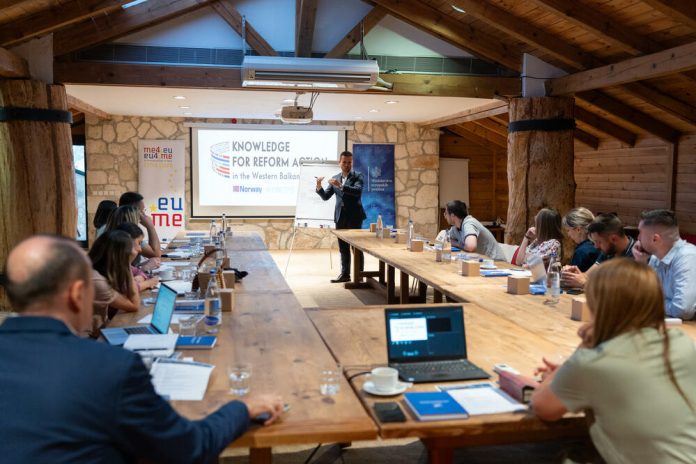With a two-day workshop held on July 2 and 3 in Kolašin, the program “Journalists for the EU – Reporting on the EU Integration Process” was officially launched. The program is implemented by the Ministry of European Affairs, in cooperation with UNOPS, a specialized UN agency in infrastructure, procurement, and project management, and the EU4ME project funded by the European Union.
The program is intended for journalists from national and local media who cover EU-related topics, with the aim of strengthening their capacities for professional, analytical, and ethical reporting on key aspects of Montenegro’s EU accession process.
During the two-day training, ten journalists from eight national and two local media outlets had the opportunity, through interactive sessions and workshops, to become familiar with the strategic and technical aspects of EU integration, IPA funds, cross-border cooperation, the Growth Plan for the Western Balkans, and the role of media in this complex process.
Montenegro’s Chief Negotiator with the EU, Predrag Zenović, and State Secretary at the Ministry of European Affairs, Biljana Papović, discussed the technical and political aspects of the negotiation process with the journalists.
“Media are indispensable allies in this process – they shape public perception, create space for dialogue, and demand accountability. That is why it is important to speak about European integration clearly, accurately, and with arguments. Communication of the negotiation process is not a side activity, but an integral part of our society’s European transformation. Citizens have the right to know where we stand in the accession negotiations, what the obstacles are, and what the opportunities are,” Zenović emphasized, speaking about the importance of professional media reporting.
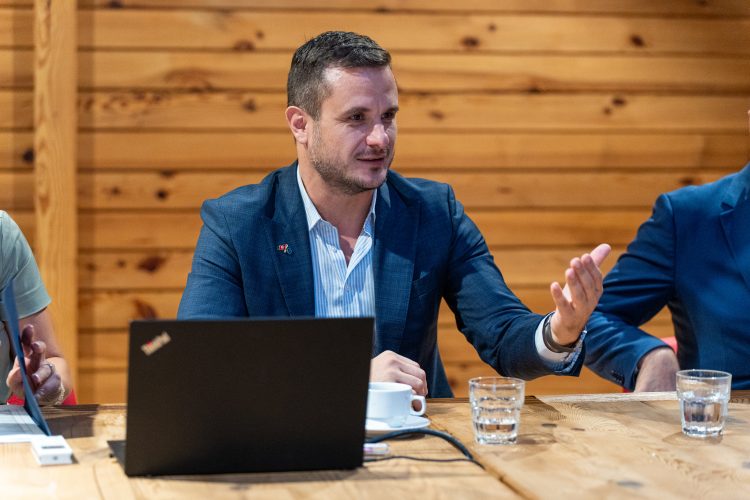
He added that professional reporting contributes to building trust and a broader societal consensus on the need for and pace of European reforms. “The Ministry of European Affairs and I, as Chief Negotiator, remain open to cooperation with all journalists and newsrooms that wish to contribute to objective, critical, and constructive coverage of Montenegro’s European path,” Zenović concluded.
State Secretary Biljana Papović highlighted the role of the media as partners to institutions in the EU integration process.
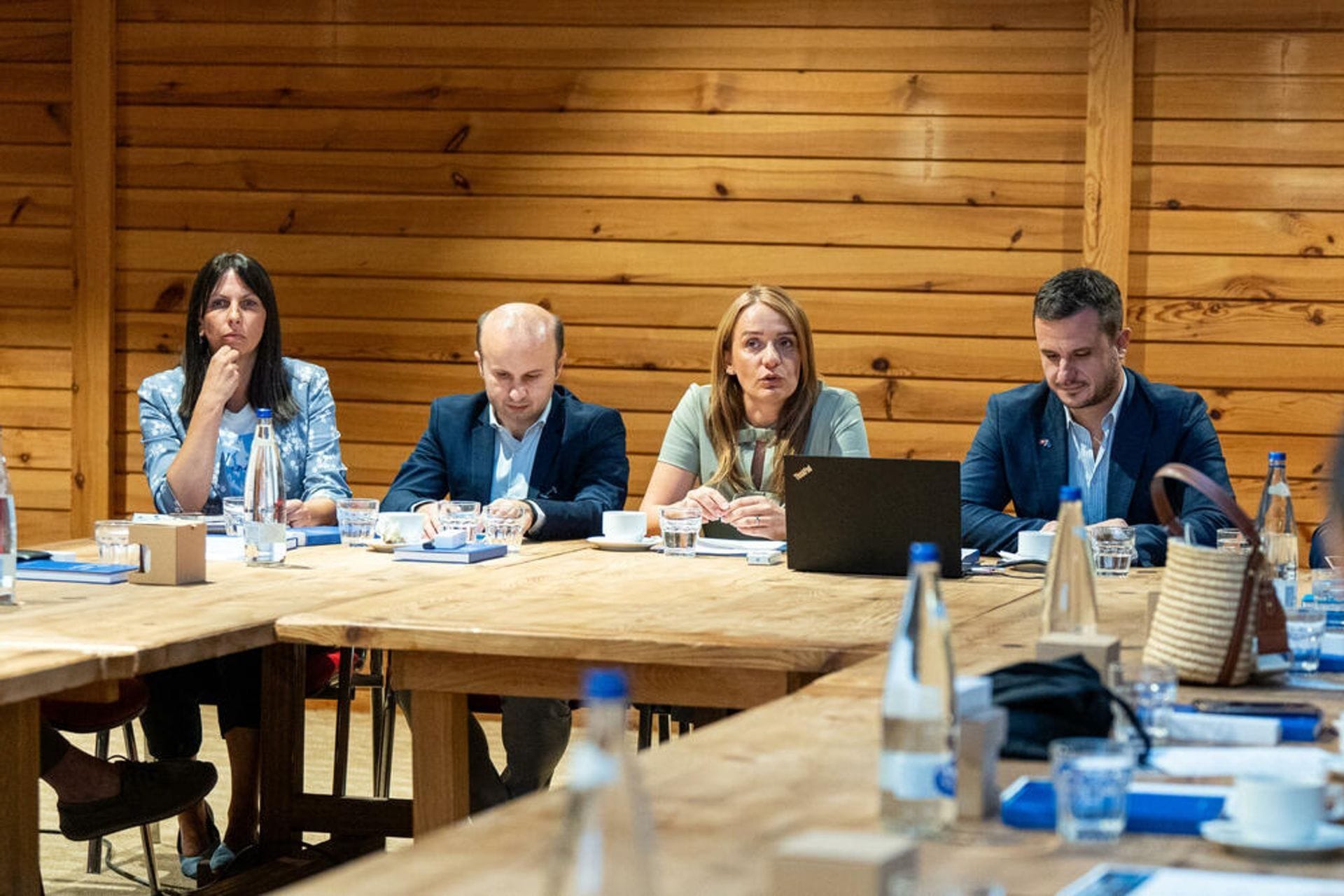
“European integration is a national priority, and the media are our key allies in that process. We need informed and professional journalists who will bring EU topics closer to citizens, convey the truth about reforms, and help build trust in the integration process itself. With this training, we aim to build a strong partnership with the media to ensure accurate, timely, and understandable information about the course of negotiations with the European Union and the real effects of reforms on citizens’ everyday lives,” stated Papović.
Special attention during the workshop was devoted to the opportunities provided by EU funds, Interreg, and territorial cooperation programs.
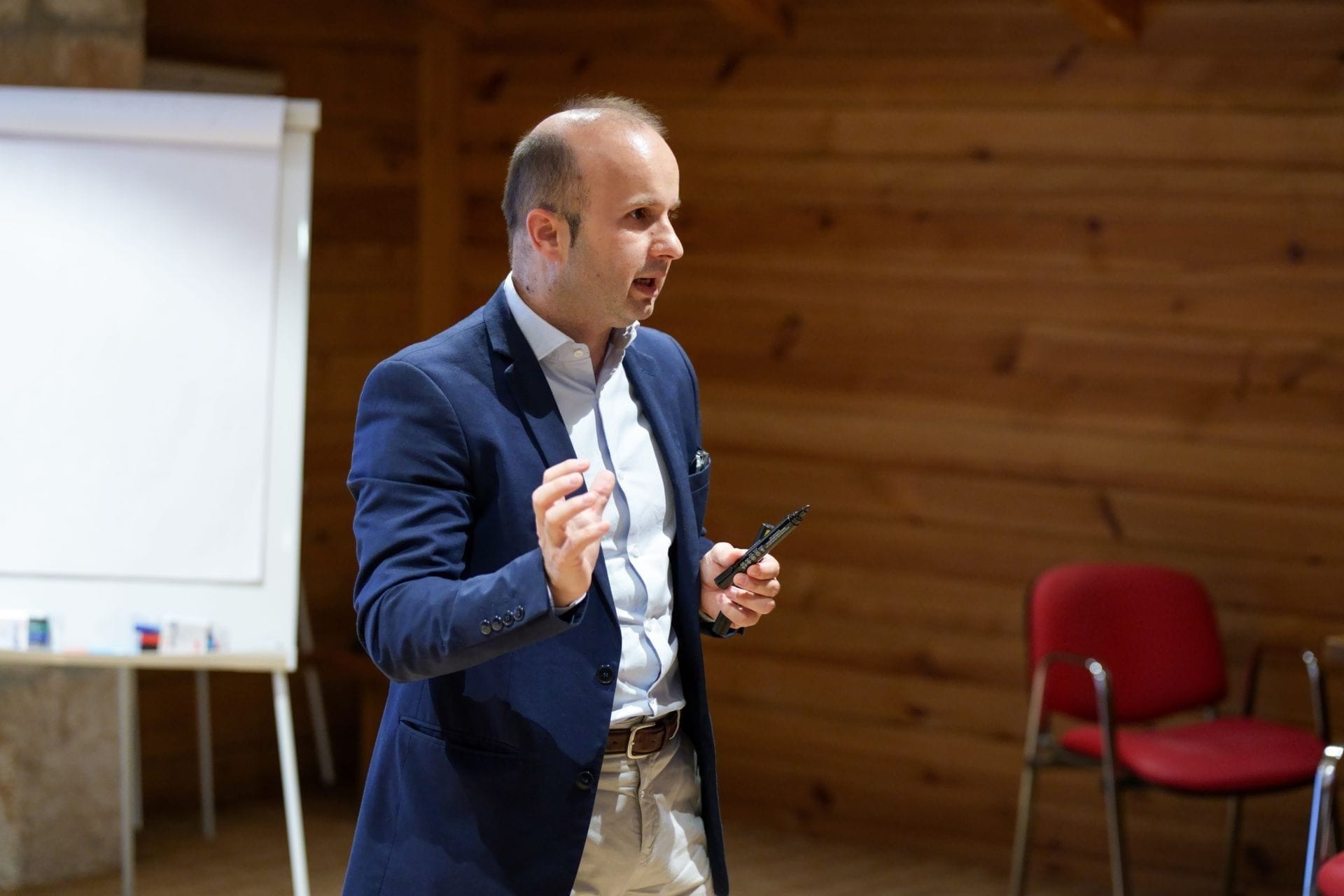
Miloš Marković, Director General of the Directorate for European Territorial Cooperation, emphasized the importance of territorial cooperation: “European territorial cooperation programs are an important tool for connecting Montenegro with neighboring countries and the EU, enabling the implementation of joint projects, access to funds, and strengthening the capacities of local and national institutions, while also making a strong contribution to regional development and preparation for EU membership.”
Irena Bošković, Head of the Directorate for Coordination of EU Financial Support, presented available EU support programs, with a focus on the Growth Plan for the Western Balkans.
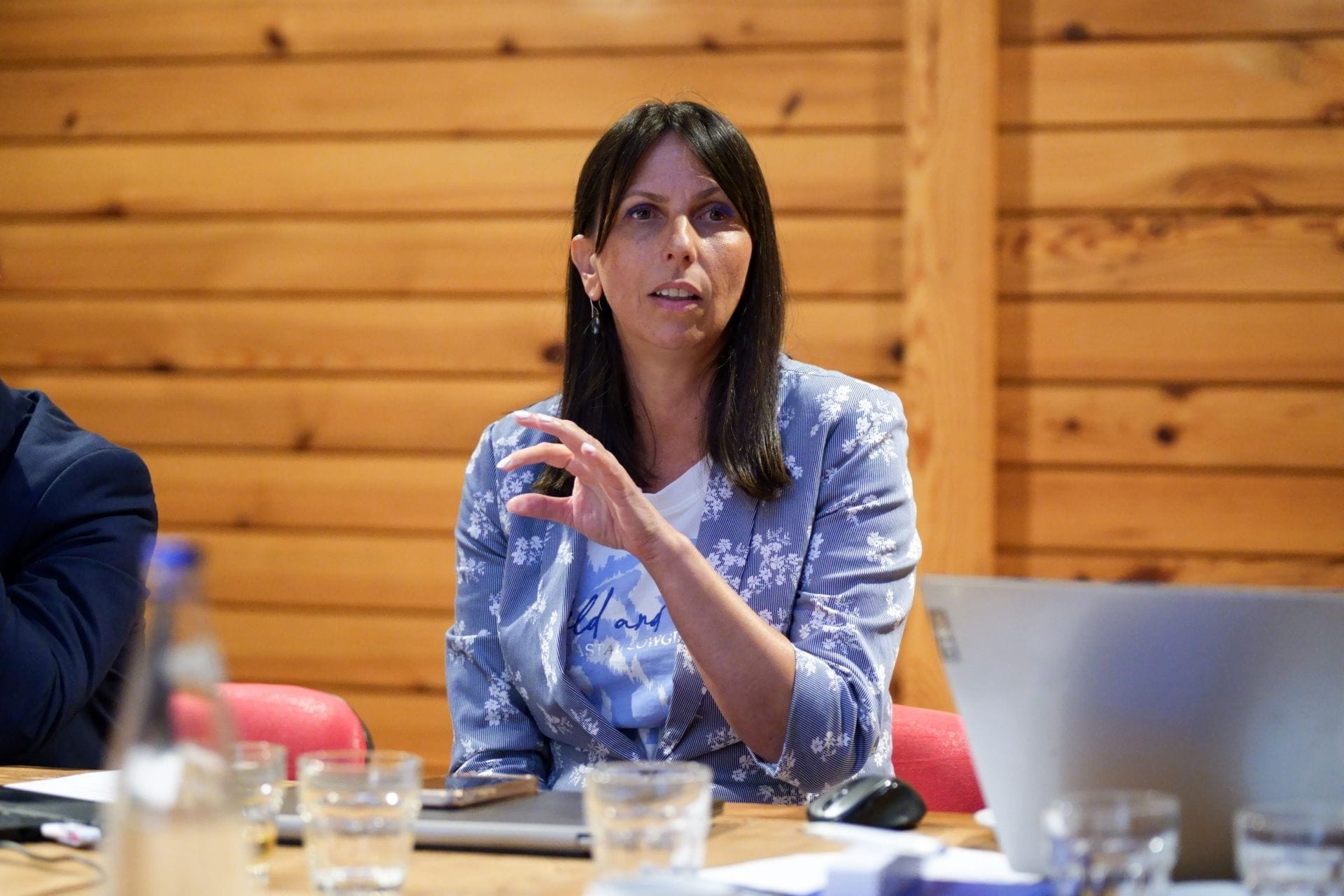
“The Growth Plan for the Western Balkans is a comprehensive instrument that not only accelerates our path to EU membership but also brings concrete benefits to citizens through new jobs, better services, and stronger economic development,” stated Bošković.
The second day of the training focused on developing practical journalistic skills. Long-time Brussels correspondent Augustin Palokaj held a workshop on techniques for reporting on EU topics, fact-checking, and working with EU sources.
“I believe that workshops like this are extremely important. During Croatia’s negotiation process, I also participated in similar trainings and visited countries like Poland and Estonia to understand their experiences first-hand. The enlargement process and the functioning of the EU itself are very complex, and that’s why it is crucial that journalists are well-prepared – to first understand the processes themselves, and then convey that information to the public clearly and accessibly. For Montenegro, which has been negotiating for 13 years and is near the final phase, it is especially important that the media focus on the content, benefits, and consequences of membership. That’s why such workshops, as well as study visits to Brussels and new member states, are invaluable,” emphasized Palokaj.
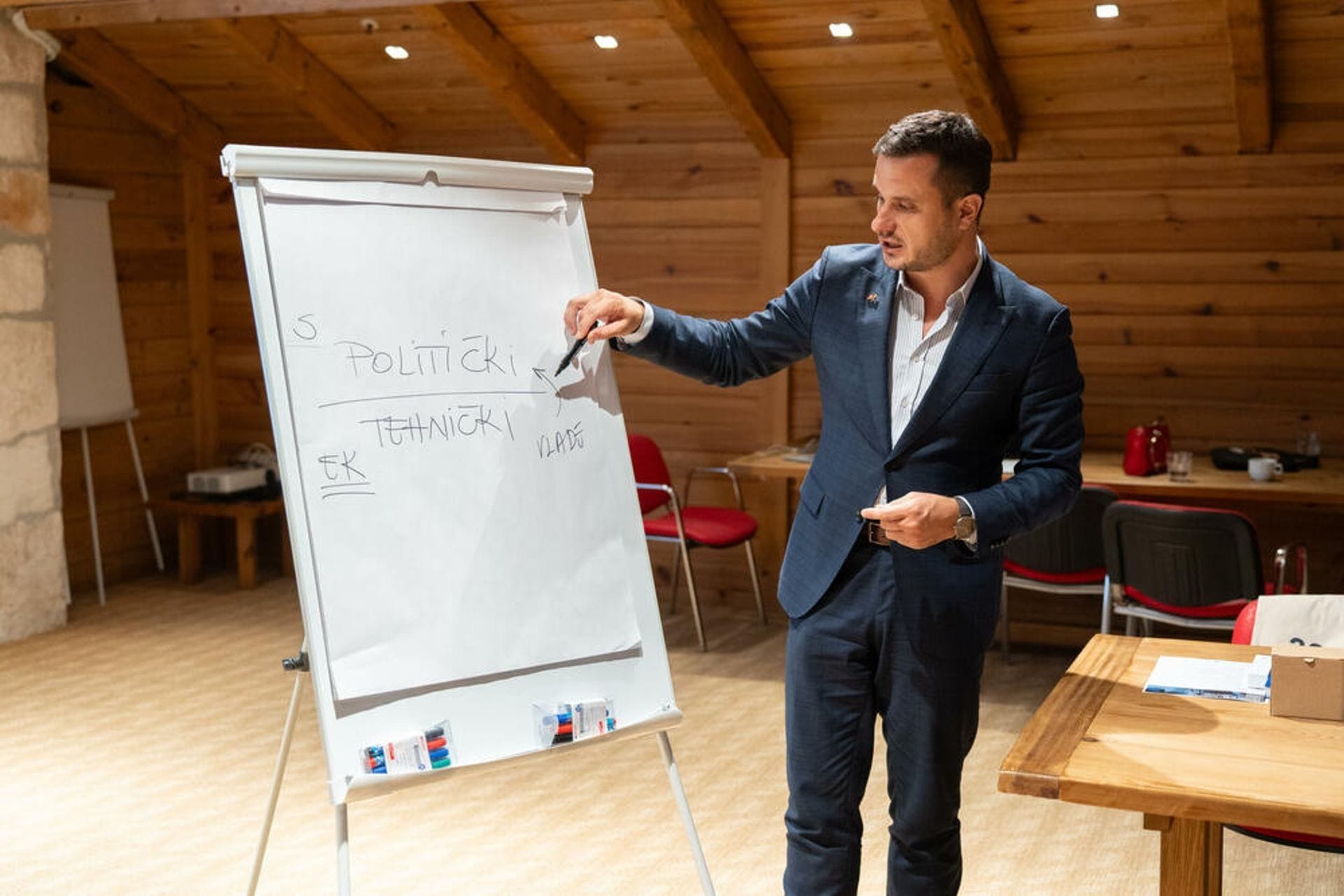
Participants also shared their experiences and impressions of the workshop’s significance.
“This workshop was very important for us journalists, as key social actors in spreading accurate information and awareness about this process. There was great interest and a high level of interactivity during the workshop. All praise for the organization, speakers, and concept,” said Aleksandar Lutovac, journalist for the daily newspaper Dan.
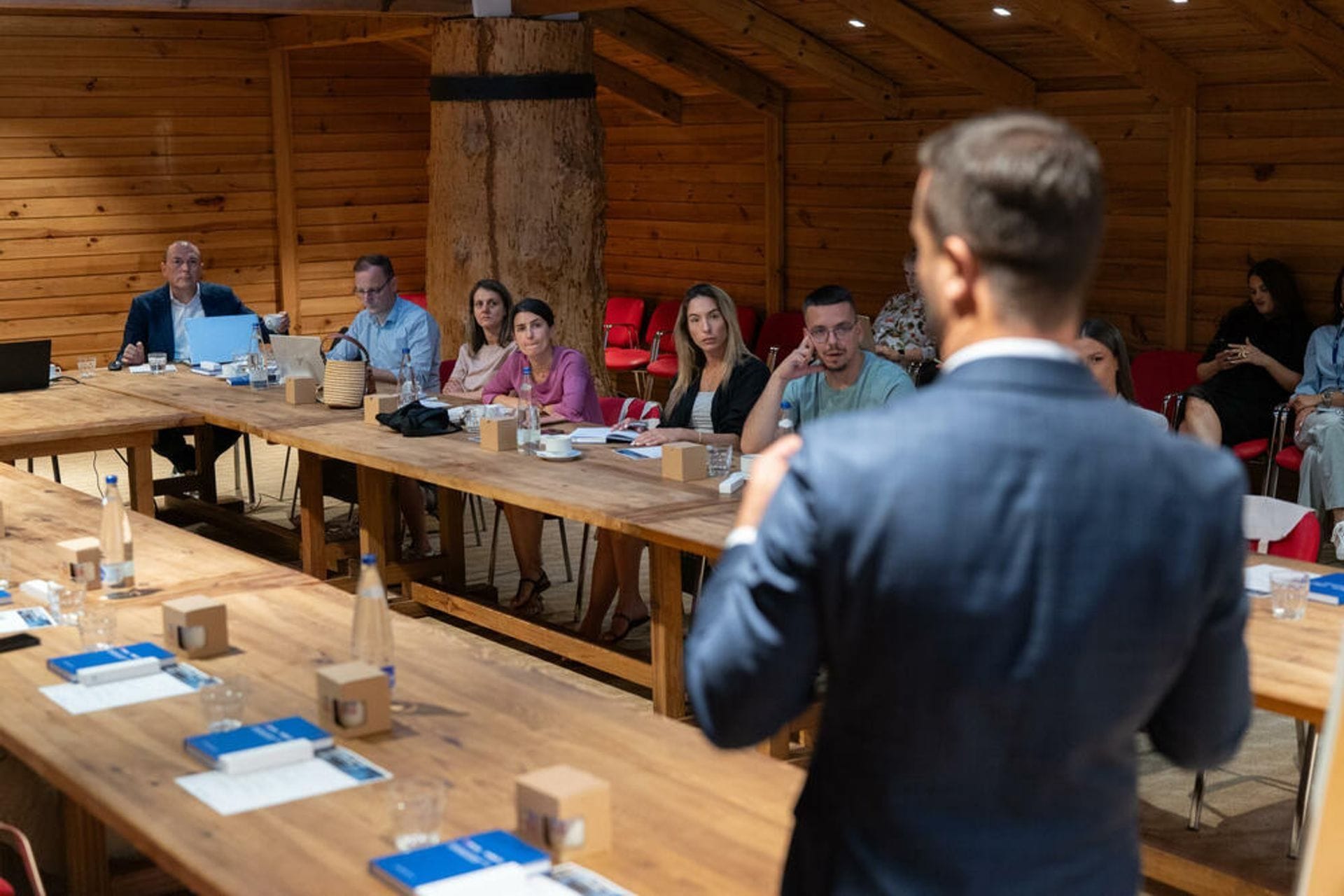
Milica Kapa, journalist at RTCG, said this was a very useful experience. “Only through concrete examples and discussions with speakers directly involved in the EU accession process did I understand how complex and multi-layered the process is. It was especially valuable to talk about how to present these topics to citizens in a clear and understandable way. I am motivated to approach reporting on this area more carefully and responsibly in the future.”
The program “Journalists for the EU – Reporting on the EU Integration Process” will continue throughout 2025 with a series of thematic briefings, visits to successful EU projects in Montenegro, and a study visit to Brussels.
The initiative aims to contribute to a better understanding of the EU process and improved public information in Montenegro.
MINISTRY OF EUROPEAN AFFAIRS


